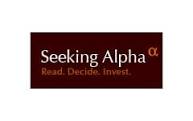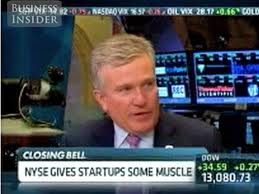
BrokerDealer.com’s blog editor thanks Seeking Alpha for below extract; an independent analysis of alternative fund management firm Ares Management, which launched its initial public offering (IPO) on May 1. The analysis of this multi-strategy investment management platform was contributed by Don Dion, the owner and Chief Investment Officer of DRD Investments, LLC, based in Naples, FL. and Williamstown, MA., a family office focused on managing a long/short hedge fund, real estate assets and various other financial assets for the Dion family.
Summary
- The Quiet period on underwriter research on ARES will come to an end on May 26th, 25 days after the firm’s May 1 IPO.
- ARES has had a rocky start on the market post-IPO after pricing well below the expected range and continuing decline, despite strong underwriting, management, and revenues.
- Given ARES’ strong fundamentals, we suggest investors consider buying into the company as share price could temporarily increase, following underwriter reports.
The SEC-enforced quiet period on underwriter research on Ares Management LP (ARES) will come to an end on May 26th, 25 days after the firm’s May 1 IPO.
The expiration of the quiet period will allow ARES’ IPO underwriters to publish research reports on the alternative asset manager, likely leading to at least a temporary increase in the price of ARES shares.
Strong Underwriting Could Lead To Flood of Positive Reports
The firm’s lengthy roster of underwriters, including BofA Merrill Lynch, J.P. Morgan Securities LLC, Barclays Capital Inc, BNY Mellon Capital Markets LLC, BMO Capital Markets Corp, Citigroup Global Markets Inc, Deutsche Bank Securities Inc, Credit Suisse Securities (USA) LLC, Goldman Sachs & Co, Imperial Capital LLC, Houlihan Lokey Capital Inc, JMP Securities LLC, Mitsubishi UFJ Securities Inc, Keefe Bruyette & Woods Inc, Morgan Stanley & Co LLC, SMBC Nikko Securities America Inc, RBC Capital Markets LLC, SunTrust Robinson Humphrey Inc, Wells Fargo Securities LLC and UBS Investment Bank, will attempt to breathe life into the stock by unleashing a wave of positive research on ARES at the conclusion of the quiet period.
Correlation Between Underwriting and Share Price
Both the results of recent academic studies and our own research over the past two years have provided empirical evidence of a correlation between the reputation and quantity of IPO underwriters and a rise in share prices with the expiration of the quiet period; ARES’ impressive list of underwriters should prove an asset at the end of the quiet period.
Share prices usually begin to rise a few days in advance of the expiration as aggressive investors purchase shares in order to take advantage of the upcoming underwriter reports. These early buys generate an atmosphere of rising demand, causing a rise in the price of shares before the underwriters have had the opportunity to publish their reports.
Overview of ARES Business
ARES is an alternative asset management firm, offering a variety of investment strategies to its growing investor base.
About the Analyst Continue reading →
![]() Brokerdealer.com credits TABB Forum and submission from Kim Wales/Wales Capital with below
Brokerdealer.com credits TABB Forum and submission from Kim Wales/Wales Capital with below

